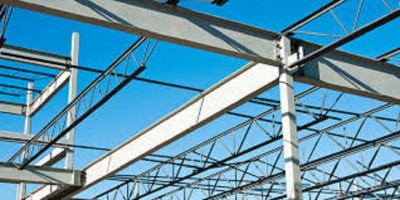Steel Fabrication Melbourne: Workmanship Fulfills Technology
Steel Fabrication Melbourne: Workmanship Fulfills Technology
Blog Article
The Ultimate Handbook on Custom-made Steel Construction Solutions for Structural Projects
In the realm of structural projects, the relevance of custom-made steel construction services can not be overemphasized. From the foundational understanding of steel construction basics to the intricate process of selecting one of the most suitable products, every action in this trip plays an essential function in the best success of a task. As we browse via the complexities of design considerations, fabrication processes, and quality assurance actions, an extensive manual works as an assisting light for professionals seeking quality in steel manufacture remedies. Keep tuned to uncover the insights that can change the way structural jobs are approached and executed.
Understanding Custom-made Steel Manufacture Basics
Exploring the principles of custom steel construction offers understanding right into the intricate procedure of transforming raw steel right into tailored architectural components. Customized steel fabrication is a specific manufacturing strategy that includes cutting, shaping, and putting together steel materials to create unique frameworks according to certain job needs. Comprehending the basics of custom-made steel construction is critical for making sure the effective implementation of architectural jobs.
The process generally begins with the assessment of project specs and design requirements. This first phase includes detailed planning and partnership in between developers, engineers, and fabricators to determine one of the most suitable approach for making the steel elements. Accuracy is key during the manufacture procedure, as also minor inconsistencies can affect the structural integrity of the final item.
Different techniques, such as cutting, welding, and shaping, are utilized to change raw steel into the wanted structural aspects. Proficient fabricators make use of advanced equipment and devices to make sure accuracy and uniformity throughout the construction process. Quality assurance measures are executed to validate the integrity of the made parts before they are constructed on-site, ensuring compliance with sector requirements and job specs.
Picking the Right Steel Materials

Most importantly, the kind of structural project and its details requirements play an important role in identifying the most suitable steel materials. Elements such as the load-bearing capacity, ecological conditions, and preferred life expectancy of the framework will certainly dictate the quality and type of steel that should be made use of.
Additionally, the physical homes of the steel, including strength, weldability, and ductility, have to align with the task's requirements to ensure ideal efficiency and resilience (Alpha reo). Furthermore, factors to consider such as deterioration resistance, cost-effectiveness, and availability of the steel products ought to additionally be taken into account during the selection process
Design Factors To Consider for Structural Tasks
Structural tasks necessitate thorough attention to make factors to consider to make sure both performance and safety are focused on throughout the building and construction process. When it comes to creating architectural tasks, a number of vital elements should be taken right into account to guarantee the success of the undertaking. By meticulously taking into consideration these facets throughout the style phase, designers and designers can guarantee the architectural project's success from conception to completion.
Simplifying Construction Processes for Efficiency

Moreover, carrying out lean manufacturing concepts can considerably boost performance in steel fabrication. By minimizing waste, optimizing process, and enhancing interaction between various groups associated with the manufacture process, tasks can be completed much more quickly and with greater quality criteria.
Additionally, developing a well-organized production routine and operations can aid in prioritizing tasks, designating resources effectively, and conference job target dates immediately. By having a clear strategy in position and regularly checking progression, any kind of possible traffic jams or hold-ups can be determined and addressed immediately, ensuring effective and smooth fabrication procedures for structural jobs.
Quality Control and Task Monitoring in Steel Manufacture
To make sure the successful implementation of steel fabrication tasks, meticulous high quality control steps and efficient project monitoring practices are vital components in keeping accuracy and conference customer expectations. Quality assurance in steel construction involves rigorous evaluations at numerous phases of the fabrication process to verify conformity with job specifications and market requirements. This consists of product screening, dimensional checks, and weld inspections to ensure architectural stability and security.
Job management plays a vital duty in coordinating the various elements of steel fabrication jobs, such as scheduling, source allotment, and interaction among staff member. A distinct task strategy with clear purposes, landmarks, and timelines assists to keep track of development and attend to any potential issues proactively. Reliable communication in between all stakeholders, including clients, engineers, contractors, and makers, is crucial for making sure that the project advances smoothly and meets the wanted quality requirements.
Verdict
In conclusion, customized steel fabrication plays a vital function in structural projects by giving customized remedies using the appropriate products and style considerations. Performance in fabrication procedures, quality assurance, and efficient project administration are vital for successful end results. By understanding the essentials of personalized steel fabrication and carrying out structured processes, job groups can supply durable and top notch frameworks that satisfy hop over to these guys the specific requirements of their clients.
Custom-made steel construction is a specialized production strategy that involves cutting, shaping, see page and assembling steel materials to produce unique structures according to details project needs.To make sure the successful execution of steel fabrication projects, careful high quality control actions and effective task management practices are vital components in preserving accuracy and meeting client expectations. Quality control in steel manufacture involves rigorous evaluations at numerous stages of the construction process to verify compliance with task specs and market criteria (steel fixing).Task management plays a critical function in working with the different facets of steel construction projects, such as scheduling, source appropriation, and communication among group members.In final thought, custom-made steel construction plays a critical role in architectural tasks by giving customized services making use of the appropriate materials and style see this page considerations
Report this page